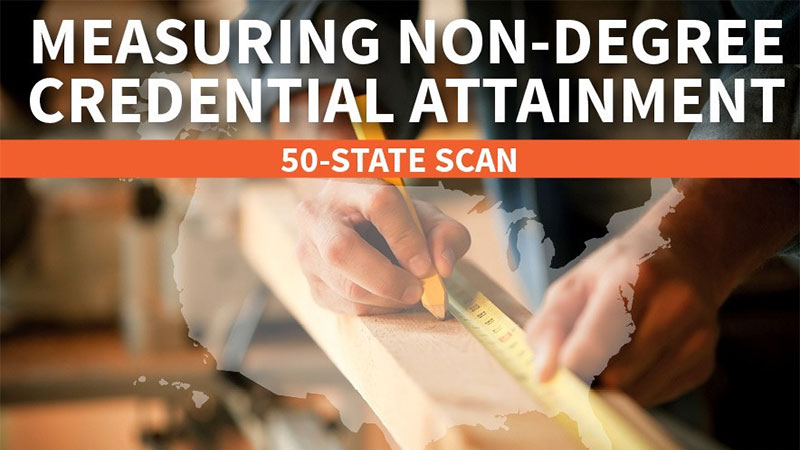
A new national report on preparing workers for middle-skill jobs shows how states are measuring the amount of training that each has in its workforce, a big step toward strengthening the links between education, training, and high-quality employment.
The National Skills Coalition report focuses on post-high school education and training that results in certifications, licenses, apprenticeship certificates, and other non-degree credentials. Middle-skill jobs are those that require more than a high school education, but not a four-year degree
The report, Measuring Non-Degree Credential Attainment, looks at all 50 states and finds that none has comprehensive data about all the types of non-degree credentials its residents have earned.
However, the report does suggest that states that measure the number and quality of those credentials are better able to gauge how useful they are in finding good jobs, whether education and training programs are working, the location of skills gaps—and job opportunities—along with other information of value to students, employers, schools and policymakers.
In short, as states continue to work on capturing these credentials, they are better equipped to meet education attainment and workforce goals. Further, states can establish the first step to improving the rate of residents who earn high value nondegree credentials—by measuring it.
“WDQC encourages state officials to use this scan to gauge their state’s progress in collecting data on non-degree credentials and to learn how to collect this data from other states who have done so successfully,” the group said in a news release.
“State staff interested in collecting more data about non-degree credentials in their states should also reach out to WDQC, as we may be able to provide technical assistance.”
Gretchen Syverud is a strategy officer for Lumina Foundation who supports state efforts to increase postsecondary attainment through Lumina’s state policy agenda.
